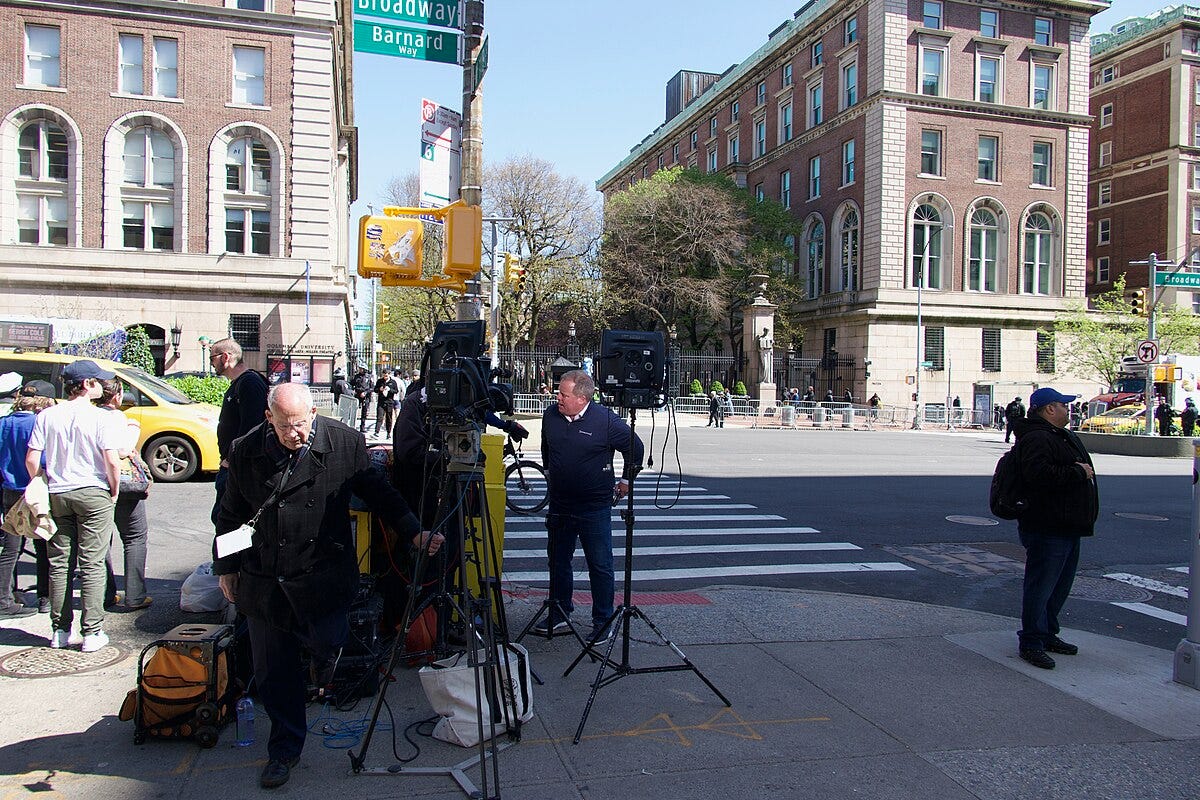Mainstream media thinks its 1968 all over again | State treasurer investigating the wrong person | Watertown a hotbed for new housing | Quick hits |
News tips? Story ideas? Email us at sbvanvoorhis@hotmail.com
Wrong target? Rising concern over potential misconduct at the state’s pot watchdog met with inaction by key state leader
That would be State Treasurer Deborah Goldberg, heir to the Stop & Shop fortune.
Goldberg remains locked and loaded in her myopic mission to oust Shannon O’Brien, a one-time ally, as chair of the Cannabis Control Commission, having suspended her for a year based on a pair of investigative reports that could charitably be called questionable.
Based on those reports, the treasurer is slated to hold a pair of closed-door hearings on Thursday and Friday that could decide O’Brien’s fate, sources tell Contrarian Boston.
The public and the press are barred from both four-hour hearings, slated to be held on the 12th floor of the McCormack state office building in Boston, sources tell Contrarian Boston.
The first report lobbed flimsy allegations that O’Brien, the Democratic nominee for governor in 2002 and former CEO of the Boston area Girl Scouts, made a racist comment that, under examination, appears to be based on a twisting of her words.
The second deals with complaints lodged by Shawn Collins, the CCC’s now former executive director, about his treatment by O’Brien when she was still actively chairing the commission.
That Goldberg is overseeing the hearing on Collins’ allegations should raise some red flags, as Collins previously worked closely with the treasurer during a stint in her office and is seen as an ally of hers.
Meanwhile, O’Brien supporters contend she is being railroaded after butting heads in a valiant attempt to straighten out a notoriously dysfunctional agency, where backbiting has developed into a fine art.
In fact, Goldberg specifically recruited O’Brien to whip the agency into shape, only to throw her under the bus when the inevitable pushback came from those at the agency not interested in reform.
The previous chair, Steven Hoffman, abruptly resigned in 2022, with no public announcement, months before his term was due to end, raising questions that remain unanswered today.
Goldberg’s focus on punishing O’Brien seems even more puzzling given the mounting issues at the agency itself, which would certainly seem like a better target for the state treasurer to pursue.
Cannabis companies have leveled allegations of abusive behavior and excessive fines by CCC staff, while two top officials, the agency’s communications and HR chiefs, left the pot watchdog last December under a cloud.

For his part, Collins, the former executive director, has now launched his own cannabis business with a former classmate, Nick Adamopoulos. In turn, Adamopoulos also just happened to previously work as an attorney for Greatest Hits, a cannabis firm that was under investigation by the CCC during Collins’ tenure.
Asked by Contrarian Boston why Goldberg hasn’t launched a review of these issues, a spokesperson for the treasurer said it was outside her statutory purview.
Yet it was not apparently outside Goldberg’s purview to appoint and then suspend O’Brien as chair. Nor does it seem to be beyond Goldberg’s purview to hold closed-door hearings based on a pair of questionable reports, one done by an outside investigator brought on by the CCC, the other by the commission itself.
Think about that for a minute. The same troubled agency that O’Brien was trying mightily to fix was in turn busy investigating her.
O’Brien doesn’t deserved to get fired, let alone be publicly humiliated. The woman deserves a medal.
Less puffery and more skepticism, please: Mainstream media can’t get enough of stories comparing today’s student protestors with their supposedly heroic late ‘60s forbears
The Globe, the Times and NPR are tripping over themselves with stories comparing today’s campus takeovers with the mass Vietnam-era protests that engulfed colleges and universities across the country.
In just two examples from the national media, a veteran Times editor nostalgically recalls hanging out on the fringes of student protests at Columbia more than a half century ago, while NPR cites a Columbia prof who sees an “uncanny” resemblance to 1968.
The Globe chimed in on Monday with its own lengthy piece extolling student protests of the past and placing today’s protests in the heady company of not just the Vietnam War, but the battle to end segregation and Black students fighting for better conditions in the 1920s.
Wow! Given the allegations of anti-Semitic taunts and rhetoric by today’s campus protestors, that’s quite a stretch, if not downright insulting to the not considerable number of people who believe Israel is involved in an existential battle for its very existence.
But all these stories are based on the unquestioning assumption that the campus protests of the late 1960s - with their seizures of buildings, destruction of property, extreme rhetoric, and, in some cases, the taking of hostages - was an unquestioned good for the nation and its body politic.

Would it have been so hard to find a moderate or conservative professor or political analyst who could point out some less positive ramifications and consequences of those out-of-control campus rampages?
One can draw a straight line from the chaotic scenes at Columbia and other campuses to the election of Richard Nixon in 1968 and the defection of millions of blue collar voters over the years to the Republican Party.
Keep reading with a 7-day free trial
Subscribe to Contrarian Boston to keep reading this post and get 7 days of free access to the full post archives.



